#the lord of the rings rather than
Text
"Tolkien does not write conventional heroes and the Lord of the Rings is a powerful statement about how all power corrupts" is a decent first order approximation, and it's certainly closer to that than a generic power fantasy action movie.
It's not fully accurate though. The Ring does not represent all power -- powerful items in the wider Legendarium are generally dangerous, but not necessarily uncomplicatedly bad things, and some powerful things like the two trees are uncomplicatedly good things. The Ring is a specific powerful item made by a vicious Maia that causes harm because that Maia crafted it with his ill intent and will to dominate. It doesn't represent power in general.
But there is a very strong general theme of wanting power over others -- mastery -- being a bad thing. While acting out of pity, in the sense of being moved to act towards the common good, is elevated as a good and important thing. Basically, "I don't know how to explain to you that you should care about other people", except on the form of several books trying to explain just that. (And I'll count the hobbit in that -- it's a simpler adventure story, but not without a great big "hey maybe you can put aside your greed-based petty squabbles with basically good people in order to deal with the real enemy for a minute?" at the end.)
But there's also just a whole lot of people being messy. Feanor sucked and his oath was a terrible idea, and obviously the downstream effects of the oath were morally heinous and pragmatically disasterous -- except that the oath and Feanor wanting his special gems back is the only reason the Noldor were in Belariad in the first place, and the Noldor were the only ones mounting an effective resistance against Morgoth that wasn't just holing up in a walled kingdom and everyone outside your borders (including all the humans) fends for themselves. If they weren't there, presumably Morgoth would have ended up dominating the continent much sooner and enslaving and torturing more people. Whereas the sensible elves that stayed behind got to enjoy, effectively, their gated community while the world outside burned. So. It's complicated.
#...maybe I should have actually talked about you know#the lord of the rings rather than#saying I was going to talk about lotr#and then going off about the Silmarillion#but ok even in lotr#you get things like the phial of elendil#that Galadriel gives to Frodo#that are just good#are lembas and mithril and the elven cloaks#not items of power?#does Gandalf the White not come back with more power than he left with?#I mean yeah he didn't seek it out#but he does get it
6 notes
·
View notes
Text
In an undated letter written in the late 1950s, reproduced in THE LETTERS OF JRR TOLKIEN, Tolkien alludes to the legal difficulties Sam faced after returning from the Grey Havens at the end of LORD OF THE RINGS:
When Master Samwise reported the ‘departure over Sea’ of Bilbo (and Frodo) in 1421, it was still held impossible to presume death; and when Master Samwise became Mayor in 1427, a rule was made that: ‘if any inhabitant of the Shire shall pass over Sea in the presence of a reliable witness, with the expressed intention not to return, or in circumstances plainly implying such an intention, he or she shall be deemed to have relinquished all titles rights or properties previously held or occupied, and the heir or heirs thereof shall forthwith enter into possession of these titles, rights, or properties, as is directed by established custom, or by the will and disposition of the departed, as the case may require.’
You can see how the residents of Hobbiton might have seen Sam's return as the premise of a kind of Agatha Christie mystery plot: favorite servant of eccentric middle-aged local resident departs on an unexpected journey with his master; returns home alone two weeks later; and then conveniently produces a copy of said eccentric local resident's new will, naming the servant the heir to all his property — and the only account the servant can offer of his master's whereabouts is a preposterous story about Elves. Suspicious! Very suspicious indeed!
#books#lord of the rings#lotr#jrr tolkien#the letters of jrr tolkien#letter 214#sam gamgee#frodo baggins#the grey havens#this is funnier if you bear in mind the scene at the beginning#where the hobbits in bywater are gossiping about whether frodo's parents actually murdered each other#rather than being *accidentally* drowned in the brandywine river
363 notes
·
View notes
Text

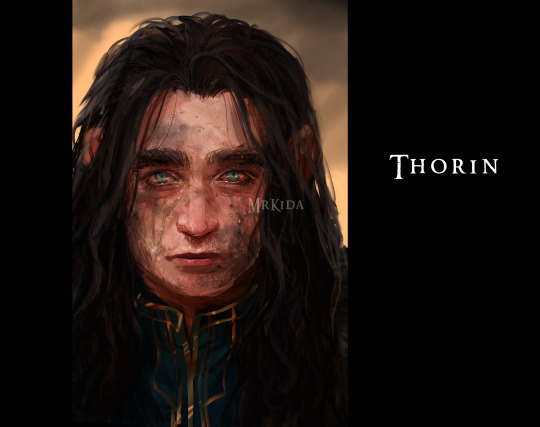
Children of Durin
#sorry for the double upload#I just made this additional version and I wanted it in it's own post rather than as a reply to the OG hehe#the hobbit#my art#lotr#tolkien#dwarves#the lord of the rings#durin's folk#longbeards#thrór#the line of thrór#thorin#thorin oakenshield#erebor#ered mithrin#the fall of erebor#the fall of ered mithrin#smaug#dwarfling#stripling#young thorin oakenshield#Mr.Kida Tolkien AU
711 notes
·
View notes
Text
Vote for your favourite horse/horse-adjacent character from Fantasy and Science Fiction books, and yell at me in the replies/comments about your fave that i missed.
#no pegasus or sleipnir bc i'm strictly keeping it to fantasy/scifi books rather than cultural mythology#i tried to limit to one per source except lotr which gets two bc it was The First#the horse and his boy#the narnia chronicles#lord of the rings#the neverending story#the witcher#the wheel of time#a song of ice and fire#the last unicorn#valdemar#shadowfax#bela#bree#binky#artax#bill the pony#roach#the silver#lady amalthea#yfandes#heralds of valdemar
503 notes
·
View notes
Text
It’s aro week, and even though I still don’t feel like I fully have a handle on what aromanticism is, I do get the impression that The Hobbit and The Lord of the Rings fit well with it? because all the main character’s most important and most central relationships aren’t romantic ones.
Bilbo is considered odd (“queer”, even) in the Shire for being a lifelong bachelor; his close relationships are with dwarven and elven friends, and with his adopted son Frodo. Frodo shows no romantic interest in anyone; his close relationships are with Sam, Merry, Pippin, Gandalf, and later Aragorn. And the later relationship with Frodo, Sam, and Sam’s wife Rosie all living in Bag End - which is specifically proposed by Frodo - seems like it fits the definition of queerplatonic? Whether or not you see Legolas and Gimli as a couple, their closest relationship is clearly with each other. Merry and Pippin also seem pretty clearly the most important people in each others’ lives, and remain close with their friends in Rohan and Gondor even after returning to the Shire. Boromir’s almost canonically aroace, going by the appendices. The close friendships between Aragorn, Legolas and Gimli are prominent, while the Tale of Aragorn and Arwen is relegated to an appendix. Most members of the Fellowship (6/9) do not get married or ‘fall in love’ in any traditional sense (and of the remaining three, one - Pippin - is only noted briefly in an appendix). The Hobbit and The Lord of the Rings both have the characters’ relationships with each other - and the importance of valuing and cherishing those, not possessions or power - at their heart, and almost all of those relationships are non-romantic ones.
#tolkien#the lord of the rings#the hobbit#bilbo baggins#frodo baggins#aro week#i don’t know if it’s that this book is aro so much as that it’s not amatonormative#even when people are married their spouse isn’t the core of their story (usually)#as with the unfinished tales material - e.g. elrond stays in middle-earth rather than going to valinor with celebrian when she is injured#because caring about middle-earth and its people is ALSO important#galadriel goes to valinor because she needs that and celeborn stays in middle-earth at least for a time because he needs that#and that doesn’t mean they don’t love each other!#correct me if i’m wrong in my understanding of concepts here
83 notes
·
View notes
Text
Hot take—I was looking back at Appendix A again, and Gondor really hit the ally lottery with the Northmen/Rohirrim because I’m not sure I would have put up with Gondor early on if I was a Northman myself. The whole relationship between the two kingdoms only started because Gondor was looking for a buffer between themselves and the Easterlings (“hey, let’s use these blonde guys as a human shield for our own protection!”). Then when individual Northmen distinguished themselves and got a foothold in Gondorian society, the “high men” (ugh) of Gondor “looked askance” at them as a “lesser and alien race” (double ugh). And when King Valacar of Gondor married the daughter of the Northman King Vidugavia, the Gondorians FOUGHT A CIVIL WAR rather than willingly accept Valacar’s totally legitimate half-Northman son and heir as their leader. Just exhausting.
Relationships between countries are never uncomplicated, and some people in Gondor were always accepting and respectful of the Northmen. And over time, Gondor as a whole proved itself as useful and loyal to the Northmen/Rohan as the reverse. The alliance between the two is so incredible in its fully developed form, and Gondor and Rohan as little best buddy nations are so sweet. But how lucky that Vidugavia’s people didn’t watch that civil war way back in the Second Age and just think to themselves, “to hell with this.”*
* I say this as a citizen of a country that is frequently an overbearing bully to its own best buddy nations (Sorry, Canada! Every American loves you!), and I’m constantly grateful that they haven’t all just decided to write us off for good!
#hot takes#lotr#lord of the rings#tolkien#rohan#gondor#northmen#vidugavia#if you’re fighting a war rather than accept my grandson as rightful king#then we’re gonna have problems
65 notes
·
View notes
Text

Some design sketches for Bilbo and Lobelia, plus a bonus thorin
#not silm#the hobbit#lotr#lord of the rings#bilbo#lobelia#thorin#lobelia is honestly rather like bilbo#only she steals shiny things from the neighbors instead of from a dragon halfway across the continent#imagine a world in which lobelia was chosen as the burglar though#...would that mean lotho pimple gets to go on the whole ring journey#bc while lobelia definitely would have stabbed more people than bilbo (see: hitting orcs with an umbrella at like age ninety)#lotho would definitely have died before he even reached the anduin#ok but imagine thranduil and thorin doing their whole starving in the woods back and forth routine#lobelia just standing there invisibly#and then the moment thranduil turns his back#*BONK*#legolas makes a surprise cameo as a drunk guy in the background getting hit over the head with a pommel#but then they wouldnt have actually made it out of menegroth lite because they would all be locked up#on the other hand then elrond and gandalf would be at the next white council meeting like hey? thranduil? where are the dwarves + hobbit
37 notes
·
View notes
Text
On Arwen, Legacy, and the Gift of Men
I've been meaning to make this post for a while, actually, so here goes:
For all we talk about Arwen's inadequate characterisation (and I won't disagree, because in comparison with all the other characters in LOTR and even the Silmarillion, Arwen isn't very heavily characterised or featured in the text of LOTR at all), I feel like what really defines her, despite a lack of obvious characterisation, and despite possibly being unintentional (though I doubt that somehow), is this overwhelming sense of having been burdened with legacy — something that feels so central to her character that it makes up for everything else and gives you a good sense of who she is. Which leads me to believe that even if she had not fallen in love with Aragorn, she would have chosen mortality anyway.
The most famous part of Arwen's inherited legacy, of course, is her similarity to Lúthien. She is someone 'in whom it was said that the likeness of Lúthien had come on earth again' (LOTR, Book 2, Ch.1), and in the Tale of Aragorn and Arwen (LOTR, Appendix A), Aragorn sees her and immediately calls her 'Tinúviel'. She looks like Lúthien, lives (to some extent) like Lúthien, and ends up dying somewhat like Lúthien too. Then there is the legacy passed down to her as a Finwean. She is named 'Arwen' (noble-maiden), a name choice that echoes the name 'Artanis' (which is of course Galadriel's father-name, and means 'noble-woman'). This sets up a comparison (which cannot be ignored, for names are of utmost significance in the legendarium) between Arwen and Galadriel — Galadriel, who is a survivor of the First Age, learned in lore and magic (under Melian's tutelage too), kind and compassionate, but also powerful and fearsome. So both Arwen's name and her face are, to a great extent, something inherited from people who are in many ways far greater than herself in their power, influence and majesty, and people whom she may feel she has to live up to.
Arwen's legacy, and the many connections she has to the noble Elves of the First Age, understandably seems to weigh on her, especially in her demeanour. Of her it is said that 'her face was more grave, and her laughter now seldom was heard' (LOTR, Appendix A) , and there is a solemnity to her, unlike Lúthien's unabashed enthusiasm for life, or Galadriel's ambition. It is evident in the little that we see of her that she is, despite being compared time and again to Lúthien and Galadriel both, not much like either of them. Taken in the context of the rest of Middle-Earth's history, as well as with reference to her other name, 'Undómiel' (meaning Evenstar), this difference becomes far more significant. For Arwen was born in the Third Age, when the time of the Elves in Middle-earth was drawing to a close; indeed, Arwen's Elven heritage is referred to by Aragorn as 'the Twilight you must renounce' (LOTR, Appendix A). She is the Evenstar of the Elves: with her, the sun will set on their time in Middle-earth, and they will depart for Aman, to be removed from the rest of the world until thr Dagor Dagorath, if it ever happens.
But Arwen has so much to live up to. She is as beautiful as Lúthien, and named after Galadriel, but the Age itself sort of denies her the chance to live up to that legacy — as an Elf, from what we know of Arda, she can never truly measure up to her ancestors' deeds in the First Age, because it isn't the First Age anymore, and her people, almost collectively, are tiring of Middle-earth, which itself is growing older and weaker. There is nothing for an Elf here. If you'll pardon me for bringing in an unexpected comparison, it's a bit like Sophie Hatter's case (from Howl's Moving Castle by Diana Wynne Jones, if anyone is unaware). Sophie feels she'll end up a failure or worse off than her sisters because that's how the world allegedly works. And in much the same way, Arwen can be interpreted as someone who feels like she can't be anyone of note in the Third Age as an Elf because Elves can't be notable in the Third Age.
Which brings me to my final point: that I think Arwen would have chosen mortality, and the life of the Aftercomers, regardless of whether she'd fallen in love with Aragorn or not. There's a bit in the Tale of Aragorn and Arwen about this that I think of when I try to make sense of Arwen's character. During Arwen and Aragorn's very first meeting, when he is but a boy and she hasn't fallen in love with him yet, she responds to Aragorn's claim that she is 'in [Lúthien's] likeness' with 'Yet her name is not mine. Though maybe my doom will not be unlike hers [emphasis mine]. But who are you?' Note here that she doesn't know or love Aragorn at this point. But she is already considering what choice she shall make in regard to remaining functionally immortal or becoming mortal. Of course, some of this can be ascribed to Elven foresight, but I still find it quite significant, because I see her becoming mortal as her choosing the only way she feels she can live up to Lúthien and Galadriel, who are both in some way a significant part of her identity.
Let's come back to Sophie Hatter. In her text, her transformation into an old lady comes with a sense of liberation, in that she feels she can do as she pleases, and is unshackled from her supposed fate. I tend to see Arwen's choice to become mortal as a similar kind of liberation, made more significant in Arda because in Arda, the 'Music of the Ainur [...] is as fate to all things [save for Men]' (The Silmarillion, Ch.1), and as an Elf, she cannot be anything but what is fated for her. Arwen breaks free of the shackles of 'Elves will fade away or sail, and become insignificant, doing their part in the fate of the world' through her choice, and ends up becoming a Queen. Even if she hadn't been a Queen in some alternate universe, I don't doubt that until her death, she would have been one of the chief advisors of the kingdoms of Middle-earth. But in the role which she ends up, she becomes influential.
No longer will she be remembered simply as 'Arwen, daughter of Elrond', relegated to footnotes much like the daughters of Finwë, but as the first Queen of the Reunited Kingdom, the first Queen of Gondor in living mortal memory. In this she becomes as important as Lúthien and Galadriel ever were — she, too, will make her mark on the dawn of a new Age, until she has 'laid herself to rest upon Cerin Amroth' (LOTR, Appendix A). Even in her death she will be like Lúthien, who chose to die a mortal after living in peace, and like Galadriel, who chose to 'diminish, and go into the West, and remain Galadriel' (LOTR, Book 2, Ch.7). The legacy she leaves — that of a whole kingdom — will be as great as that of her forebears. And I feel like she would, considering how much her heritage seems to impact her and shape her, choose that greatness anyway (almost as a contrast of sorts to Galadriel refusing the Ring, but I digress).
So yes, that's my take on Arwen. That despite the lack of information and characterisation we have for her, she can be interpreted as a complex individual, shaped by her circumstances, her heritage, and her ultimate choice to make a mark on the world as great as that of any of her ancestors by choosing mortality; not simply for love (as I feel it often gets simplified to), but also to break free of the fate that binds her and to be truly free by renouncing Elvenkind and taking the Gift of Men: that 'they should have a virtue to shape their life, amid the powers and chances of the world, beyond the Music of the Ainur' (The Silmarillion, Ch.1).
#arwen#arwen undomiel#lotr#lord of the rings#legendarium tag#the silmarillion#silm#meta#is this the essay i'm meant to be writing? no. will it be better than the essay i'm meant to be writing? yeah probably#i feel like i might be opening myself up to DiscourseTM here...oh well. i've said my piece and that's that#goes without saying that this draws upon the book rather than the films but. saying it just in case#and it was not void
30 notes
·
View notes
Text
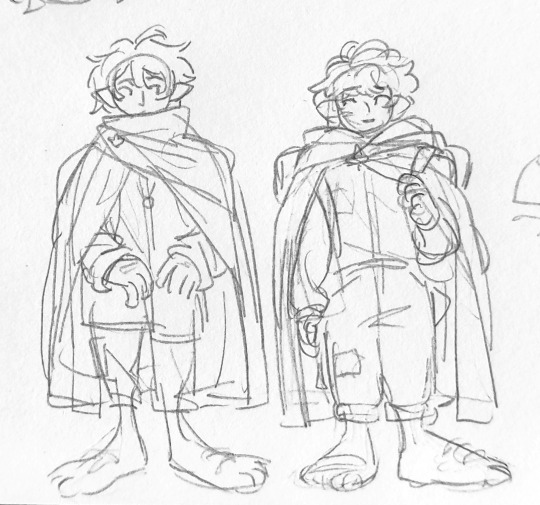
Just finished The Lord of the Rings (I cried)
#the lord of the rings#lotr#lotr fanart#frodo baggins#samwise gamgee#frodo#sam#my art#art#drawing#sketch#the last book broke me#like Frodo and Sam's relationship 😭😭 insane#should I ramble here I think I will#cause like gahhshs shipping or not shipping aside they're insane they love each other so much 😭😭#the way Sam helps Frodo and sacrifices himself and takes care of him and KISSES HIS HANDS WHY DID HE DO THAT SO MUCH ONFHC#and the way he would rather save Frodo than try saving the whole world 😭#and how he does everything to help him and make things easier for him and how understanding and gentle he is and the kisses ueueue#and how at the end he wants to marry a girl but also doesn't want to leave Frodo so they all move in together what 😭????#and then Frodo leaves 🧍 I CRIED I knew it was going to happen but aghhhdhd in the book it was sth else#overall it was such a great read (listen actually I'm an audiobook girlie)#I wasn't like obsessed I think I had higher expectations but I still loved it sm and the last book really got me 🥹#and these two istg 🥹🥹🥹#also Legolas and Gimli I GET YOU SHIPPERS NOW I UNDERSTAND#I love them dearly#again platonic or romantic idc I love their relationship so muchhh#and since nothing about them was said at the end I can be delusional that they're still together forever#anyway yeah#lotr fandom welcome#I've got some drawings ideas and also I really enjoy sketching the characters so I'll be posting more soon
94 notes
·
View notes
Text
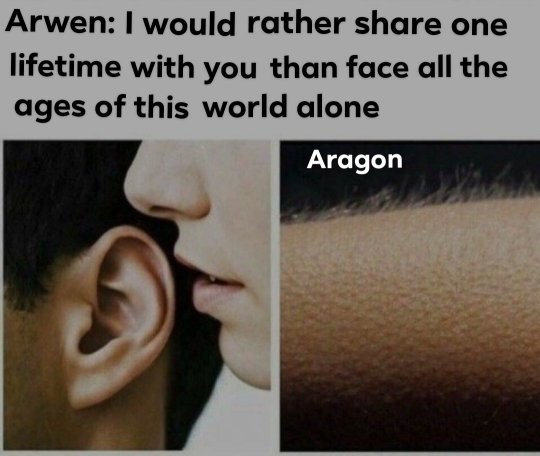
#lotr#lord of the rings#lotr memes#lotr meme#lord of the rings memes#lord of the rings meme#lord of the rings post#lotr post#aragorn#meme#arwen#arwen meme#arwen and Aragon#the fellowship of the ring memes#the fellowship of the ring#the two towers meme#the two towers#the return of the king memes#the return of the king#i would rather share one lifetime with you than face all the ages of this world alone
66 notes
·
View notes
Photo
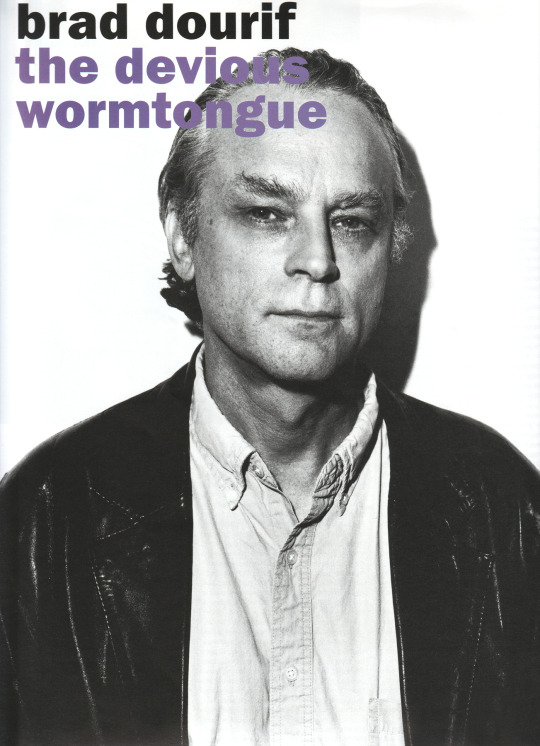
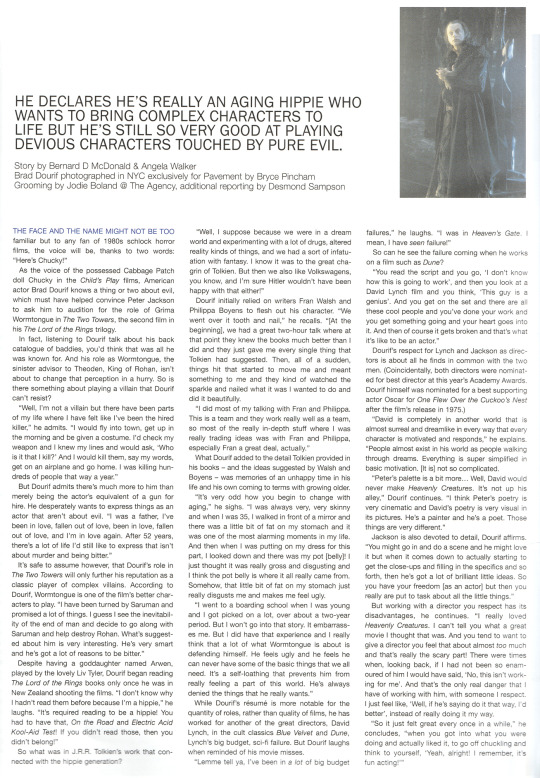
Pavement Magazine December/January 2002
#magazine scans#my scans#brad dourif#lord of the rings#grima wormtongue#'while dourif's resume is more notable for the quantity of roles rather than quality of films'#hey now..#it's okay when he says it but these writers are on thin ice#some blurry spots but about the best i can do for now considering it barely fit on my scanner
79 notes
·
View notes
Text
Small Child’s Thoughts on “Treebeard” Part 2
I think Ents are just supposed to be tree-ish. They sound like tree-ish people.
Hey, Treebeard uses the word “lost” correctly. I don’t like when people say they lost someone when they just mean they died. Those words are not the same.
I don’t think the ents and entwives are good at being married. Because if you’re married you’re supposed to be a team and work together and stay together. And they did not do that.
I don’t understand why he has a bed if he stands up to sleep. Beds are for sleeping and for lying down.
“Dingle” is a word that sounds hilarious to me.
I think my favorite ents would be ones like oak trees because I like oak trees a lot.
I do not think I am a very hasty folk. I take a long time to do things and to decide things.
Merry has maps in his head like me! But my maps are railway maps.
Wow, that was just very rude of the orcs to do. So maybe I can get why he that ent wants to fight them.
Hmm, I am a little confused about trolls and ents and orcs and elves. (That’s alright, we can talk about it later.) No, I think I will just stay confused, but thank you for the offer.
Well, now trees are just doing things trees aren’t supposed to do again!
#small child's thoughts#lord of the rings#lotr#the two towers#jrr tolkien#tolkien#read aloud#first read through#in which small child opines about marriage#he would rather stay confused than have me try and explain trolls and ents help
34 notes
·
View notes
Text
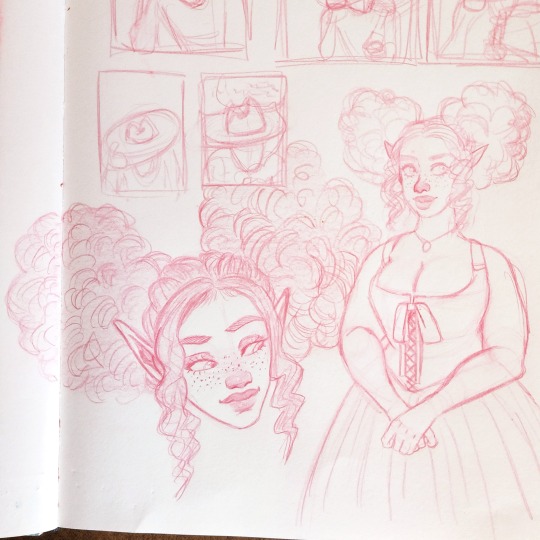
Playing around with the idea of posting more sketchy/sketchbook/preliminary stuff now that I'm setting a goal for the rest of 2023 and into 2024 to put more prep/thought into my illustrations...
Working on an illustration that is "Arwen Meets Princesscore" and I haven't decided if I'll be doing the final illustration in gouache or digitally, probably digitally bc I don't use gouache like ever haha but I might do some sketchbook paintings to practice and like i said, may be sharing the process as I work on this illustration...
Here's two fun character sketches for this piece... Arwen in a 'underdress' as well as having fun playing with her hairstyle for this illustration :)
#Sketchbook Art#Lotr#lord of the rings#arwen undómiel#lotr fanart#tolkien#tolkien fanart#silm fanart#the silmarillion#silmarillion#tolkien au#lotr au#kinda?? bc she'll be dressed in a more.. idk rococo style rather than strictly medieval#not that i care about canon consistency ever XD
25 notes
·
View notes
Text
I hate readings of eowyn that are "of course the only woman interested in battle and glory decides she actually just wants to be a wife at the end of the story 🙄" bcs congrats, you have spectacularly missed the point!
yeah, eowyn decides she no longer wants to be a warrior at the end of the series, but that is the overarching theme of Literally The Entire Story. lord of the rings is not, and has never been, about epic battles and great fighters and glory through combat. war is continuously framed as a horrifying consequence of the greed and selfishness of powerful people that ruins the lives of everyone involved
aragorn is not accepted as king of gondor because he won the battle of pelennor fields, he is accepted because of his skill and care in healing the wounded afterward. boromir's desire to use the ring as a weapon is what allowed it to corrupt him so easily, despite his noble intentions.
and yes, eowyn wanted to fight. she got to see firsthand the "glory" she sought. she got to see her uncle die in her arms, and herself and her best friend greviously injured and almost killed themselves. the whole point is that there was no glory. there was no great triumph on the battlefield. there was only struggle and horror and death.
and how could you see eowyn best one of sauron's top minions, someone even gandalf feared, and think the ultimate message was "obviously she belongs in the Home :)"
#'I do not love the bright sword for its sharpness nor the arrow for its swiftness' etc etc#like sorry but that argument reads to me the same as anything george rr martin has said about the series with just a feminist veneer#we can discuss tolkien's misogyny! the limited bumber of women in the series and their far smaller roles etc#but lets not act like he was some kind of antiprogressive who thought Women Should Be In The Kitchen Ad Raising Babies#once again his shortcomings seem to come from a place of insensitivity and unexamined biases rather than malice#lotr#lord of the rings#eowyn
105 notes
·
View notes
Text
the more I think about it, the more frodo being the deputy mayor following the scouring of the shire is so fucking funny because everyone’s like “oh, our current mayor is unwell and needs time to heal before he can resume his duties... frodo, YOU don’t have any serious physical conditions or horrific trauma to work through, do you?” and frodo, fresh off his miserable death quest, is just holding back tears like “mhm yeah no trauma here,,”
#lord of the rings#lotr#frodo baggins#now i want an au where sam runs for mayor against him just so frodo can catch a fucking break#sams platform is just 'are you people fucking STUPID?? do you have ANY idea what t mr frodos been through?? let him REST damn it!!!'#and his campaign promises are that he'll make sure frodo gets plenty of rest and six meals a day#someones like 'what are your tax policies' and sams like 'youre gonna poli-SEE these hands if you dont shut the fuck up'#(im aware frodo probably just like. Appointed rather than elected but shh let me have this)
142 notes
·
View notes
Text
shit, man, i remember with that weird sharp sort of recall of the stabs of moments in childhood, a shitty op-ed article about the release of fellowship of the ring titled "an ugly galadriel?"
and that has stuck with me for over twenty years, and rises every time i watch these movies and see cate blanchett as galadriel, how fucking wrong that shitty journalist was
#lotr#lord of the rings#like i have only vague memories of the article itself but i recall it being specifically regarding how galadriel wasn't... galadriel enough#rather than this as a metaphor for the shitty journalist's opinion that the movie itself wasn't good enough#i mean either way he was wrong#but i distinctly remember that the sense was that cate blanchett wasn't pretty enough to be galadriel#which is so jaw-droppingly baffling that i cannot comprehend the reasoning behind it
7 notes
·
View notes